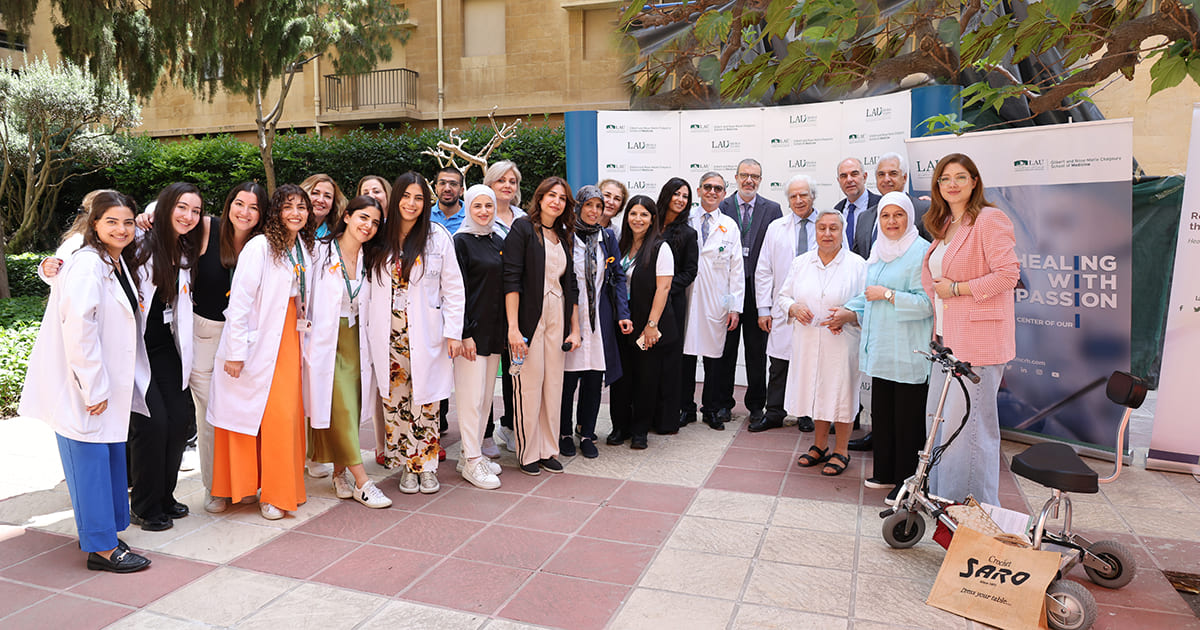A Message of Hope to Multiple Sclerosis Patients
An awareness campaign at the LAU Medical Center-Rizk Hospital aimed to debunk popular myths about the disease and inform the public about available treatments.
Affecting more than 1.8 million people worldwide, multiple sclerosis (MS) is an autoimmune disease that targets the central nervous system. Most prevalent in young adults and more common in females than males, its symptoms can develop into disabilities if untreated, including visual impairment, loss of motor functions and muscle stiffness.
While there is currently no cure for MS, like chronic conditions of diabetes and hypertension, effective clinical management of this disease can help prevent the worsening of symptoms, ensuring a better quality of life for patients.
To disseminate this crucial information and discuss the latest treatment methods, the LAU neurology team organized an awareness campaign at the hospital’s premises on May 30, 2024.
The event coincided with World Multiple Sclerosis Day and was attended by hospital patients and patients from the ALSEP (Association of Lebanese Friends of People With MS), in addition to students and residents from the LAU Gilbert and Rose-Marie Chagoury School of Medicine, the School of Pharmacy, the Lebanese University and hospital visitors.
“Through such campaigns, we want to clear misconceptions about multiple sclerosis and that not all patients diagnosed with the disease will be wheelchair-bound,” said Maya Zeineddine, clinical associate professor at the School of Pharmacy and Multiple Sclerosis Certified Specialist known for authoring the only published epidemiological study on the disease in Lebanon to date.
“We now have a lot of highly effective treatments that can control the disease and stop the disability progression,” added Dr. Zeineddine, “so the MS patient can live a normal life.”
In addition to medications that help manage the symptoms, several disease-modifying therapies (DMTs), treatments that halt the progression of the disease, are available for relapsing-remitting patients, in other words, those who suffer relapses with worsening symptoms followed by periods of remission with partial or complete recovery.
According to Clinical Assistant Professor and Acting Chair of the Department of Neurology at the school of medicine Mohamad El Dassouki, a multidisciplinary approach is a typical treatment for MS patients because they are likely to suffer from somatic, psychological and social complications, especially those still active in society.
“We are fortunate at the hospital to have an ongoing collaboration between the School of Pharmacy and the Neurology Department,” said Dr. El Dassouki, “which ensures that our patients benefit from enhanced drug therapy effectiveness and safety through pharmacotherapy interventions.”
The campaign included informative posters and interactive booths set up for visitors.
